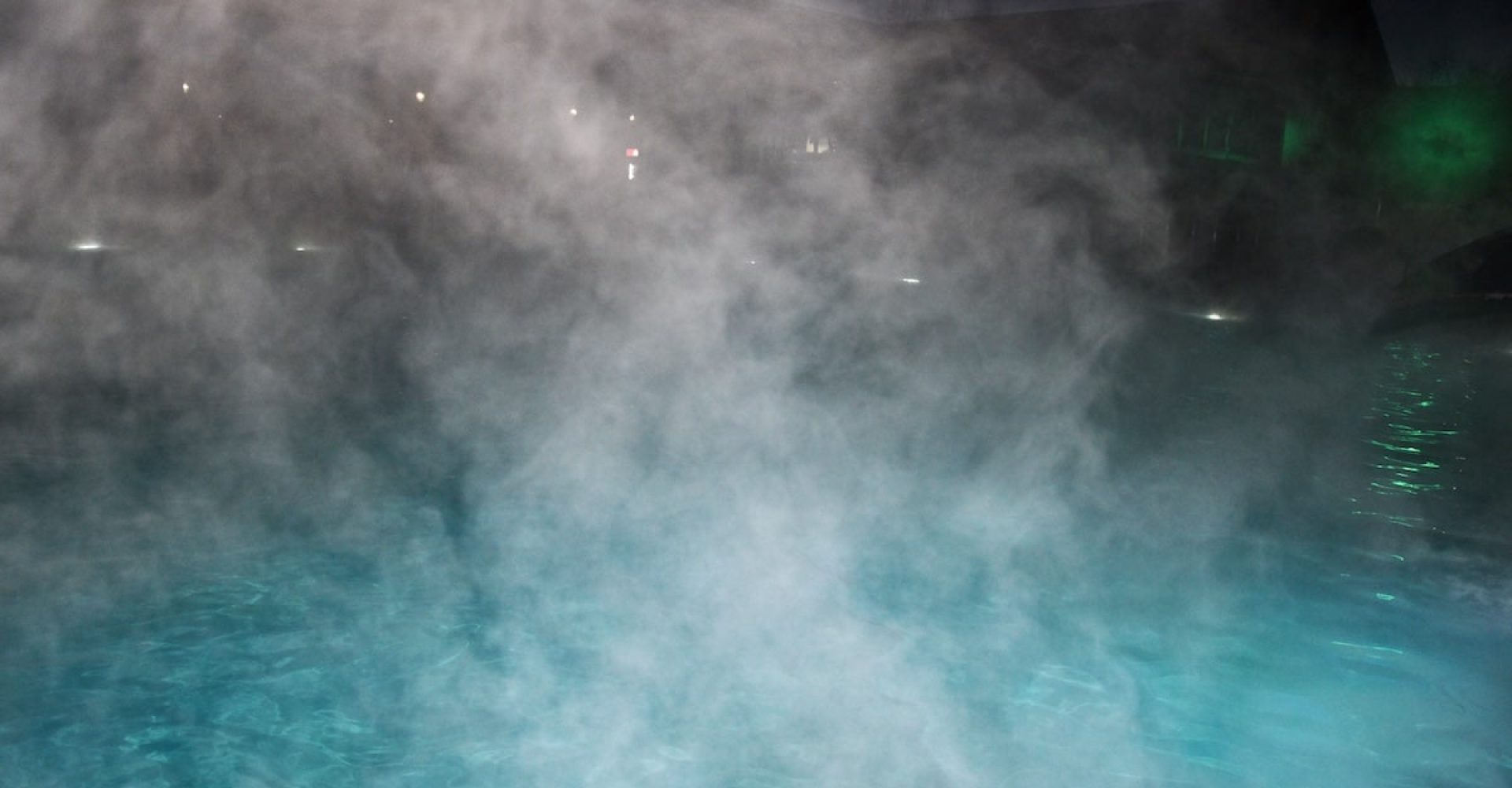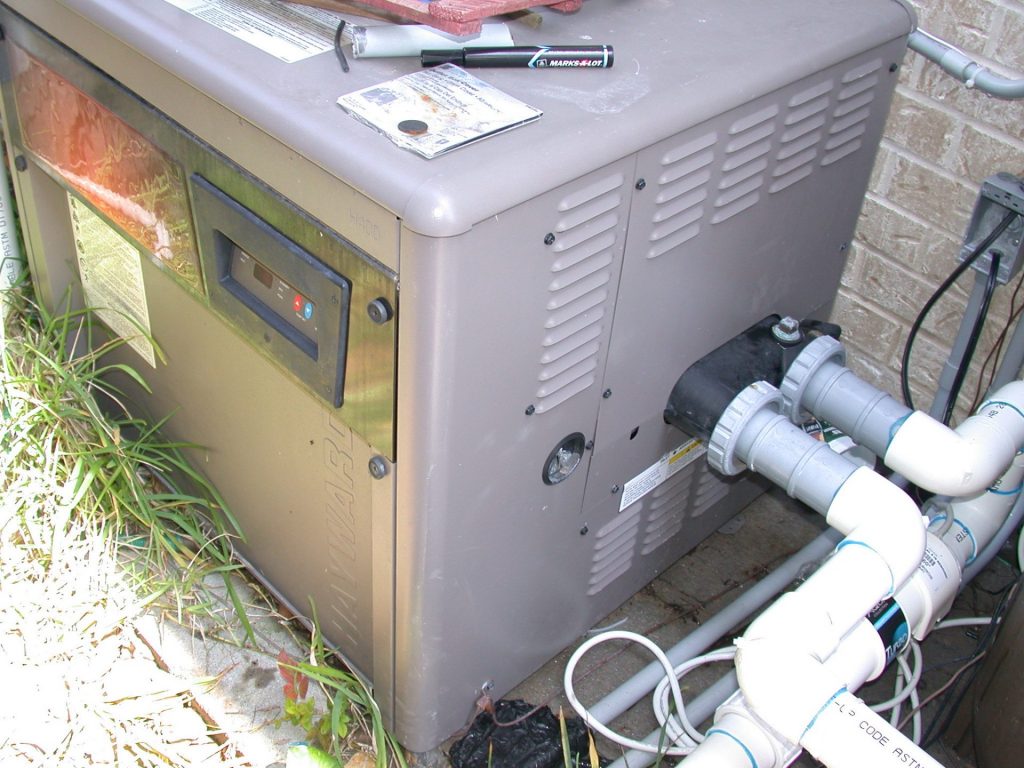
Imagine swimming in your heated pool, enjoying its relaxing comfort while the cold winter air bites outside. Does this sound like your kind of lifestyle?
Enjoying your swimming pool does not have to be confined to the warmer months of the year. With a pool heater, this enjoyment can be expanded into the colder months too. Having a heated swimming pool can boost your mental well-being, enhance the value of your social life along with your property values, and help you get the most out of your outdoor space all year long.
Let’s take a look at:
When you have a swimming pool installed, it is easy to imagine using it all summer long, but by upgrading your installation with a pool heater you can start to see the benefits of using your pool during the winter too. The benefits of heated pools encompass your health, lifestyle, and full time use of the investment you made in your outdoor space.
A heated pool allows you to take in the physical and mental health benefits of swimming throughout the year, which can improve your circulation, strengthen your lungs and muscles, loosen up joints, and relieve stress. Your heated pool also has an increased social and entertainment value with the opportunity to host pool parties and invest in family bonding time around the pool during all months of the year.
This extended use of your outdoor space, despite the cold, makes your heated pool a richer investment in your quality of life and the property value of your home.
There are three main types of swimming pool heating options on the market – solar, gas, and electric. Each of these pool heating systems has their pros and cons, so let’s take a look at each one so you can decide which heater pool system is right for you.
As the name suggests, solar pool heating uses the sun’s rays to heat the pool water. The system is more expensive to set up, but much less expensive to run than other options. It is also energy efficient, eco-friendly, and can last upwards of 20 years. Solar pool heating in winter can be a challenge, however, since it does require direct sunlight and the water heats more slowly than other systems. At times, you may need a backup system to heat the water 100 percent.
Gas heaters use propane or natural gas heating systems to heat your pool water. As a pool heater option, gas heaters have the least expensive upfront costs, but can also cost the most to run when compared to either solar or electric. Gas is a less eco-friendly option also and the systems have a lifespan of about 5 to 10 years. They are reliable, however, and can heat the water at any temperature and more quickly than other systems.
This heating system works by pumping your pool water through a heat tank, circulating the water through a constant exchange of cold water in and warm water out. When looking at gas vs. electric pool heaters, electric heaters are more expensive up front but are less expensive to operate, so the cost over time can even out. They also heat the water more slowly than gas. These systems, however, are eco-friendly and energy efficient and can last upwards of 25 years. They do require electricity and are less effective the colder the outside temperature becomes.
All and all, solar and electric systems are more expensive than gas to purchase and install but are eco-friendlier and more energy efficient pool heaters than gas. The solar and electric systems last longer than gas too, giving them longer-term cost savings. Gas can be installed with less upfront costs, but are ultimately more expensive to run and will need to be replaced more often. Weighing these options for your budget and lifestyle will go into your choice of pool heater system.

No matter what system you install, some tips for maximizing the energy efficiency of your pool heater, include:
There is no doubt that using your pool year-round will include some extra costs than if you are only using it during the warmer months. To budget for these extra costs consider:
Learning how to keep your pool warm in winter includes winter pool maintenance that goes beyond winterization.
The meaning of below freezing temperatures is that it is the temperature at which water freezes. The goal in preventing freezing damage is to not have the water in your pool freeze, even though the outside temperature is freezing.
Some pool winterization tips to help achieve this goal include:
There are any number of ways to enjoy your heated pool in winter, and bringing your creativity into the mix can truly make your outdoor oasis something to value yearlong. Here are a few ideas to get you started.
Your family and friends can enjoy your heated pool by throwing a winter pool party. Encourage your guests to enjoy an outdoor swim by adding a firepit, a towel warmer, and some outdoor lighting and music to make the space cozy and inviting. Other winter pool party ideas that will encourage your guests to venture outdoors include:
Make sure you also plan ahead and give your pool enough time to heat up between 85 to 100 degrees. In freezing temperatures this can take about 12 hours.
During the summer months it can be easy to get motivated to take a swim to kickstart your day. With a heated swimming pool this healthy routine does not have to stop in the winter months. At the other end of the day, the winter sky can be clear and crisp, showcasing an array of stars. Imagine being able to enjoy a nighttime swim under a starry landscape. It can be just the motivation you need to continue your swim exercise even as the weather turns cold.
By installing a pool heater, you can enjoy the full usage of your swimming pool even as the weather turns colder. This includes activities that are good for your physical, mental, and social well-being. The benefits of owning a swimming pool do not have to be confined to the warmer months.
Contact Tracer Pool and Landscape for more information on how you can upgrade your pool for winter use.